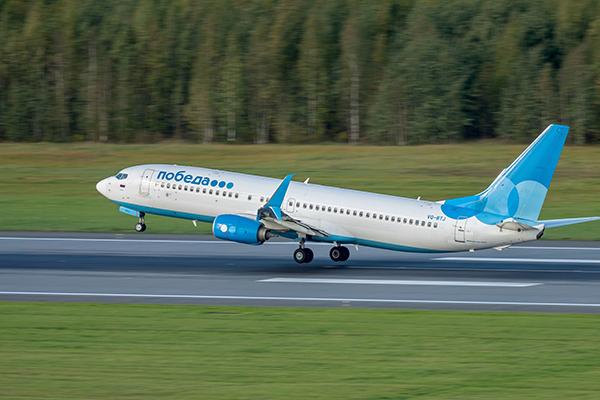
Russian airlines have managed to persuade the government not to include a limit on the number of passengers on commercial flights in new coronavirus-protection guidelines.
This provision was removed from the anti-COVID-19 protocol for nationwide air transport, approved by the country’s aviation authorities last week. The initial version of the document advised airlines not to fill more than 50% of passenger seats and to avoid placing passengers next to each other or directly in front or behind one another.
Russia’s Association of Air Transport Operators argued to the government that the measure was redundant. It cited an IATA study that said there was no evidence of COVID-19 infections inside aircraft because of the HEPA filters used for air conditioning in the cabin.
Nevertheless, the approved guidelines insist that crew and passengers wear protective masks and gloves during the duration of the flight and change them every three hours. Passengers are not allowed to take their possessions from the overhead luggage bins until landing. The fasten seatbelts sign should be on at all times while the aircraft is in the air and access to the lavatory should be controlled by the cabin crew to prevent gatherings.
Social distancing is mandatory during boarding and disembarking. Anyone with a body temperature above 37C will not be allowed on board.
The ban on passengers walking inside the aircraft can be eased at the next stage of the relaxation on restrictions, when the fasten seatbelts sign can also be operated as normal.
Body temperature screening during boarding remains at the third level of the pandemic restrictions. Cabin crew and passengers will still be required to carry masks and gloves, but they will only have to be worn if a person on board develops either a high temperature on the flight or other COVID-19 symptoms.
The level of anti-pandemic restrictions should be determined by regional authorities. Many Russian airlines have already implemented many of the suggested measures.
Flight restrictions following the outbreak of COVID-19 have dealt the most serious blow to Russian air transport in its history. The Russian government imposed a complete ban on international air travel—with the exception of repatriation flights—on March 26. As a result, international traffic came to an almost complete halt with just 22,000 passengers carried in April.
Domestic air traffic fell by 87% to 717,000 passengers because of low demand. There are no formal restrictions on domestic flights, but many Russian regions require incoming travelers to spend two weeks in quarantine.
The Russian government has not yet decided when it will open its border. But airlines hope to increase traffic in the summer season as some Russian regions expect to lift restrictions. The country’s third largest carrier—low-cost carrier Pobeda—has announced it will resume domestic flights from June 1.





